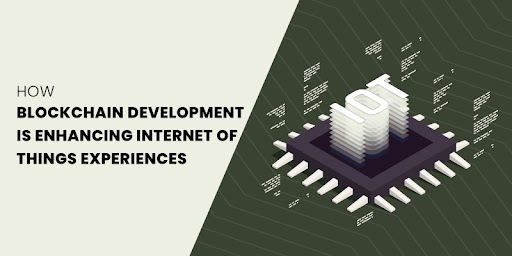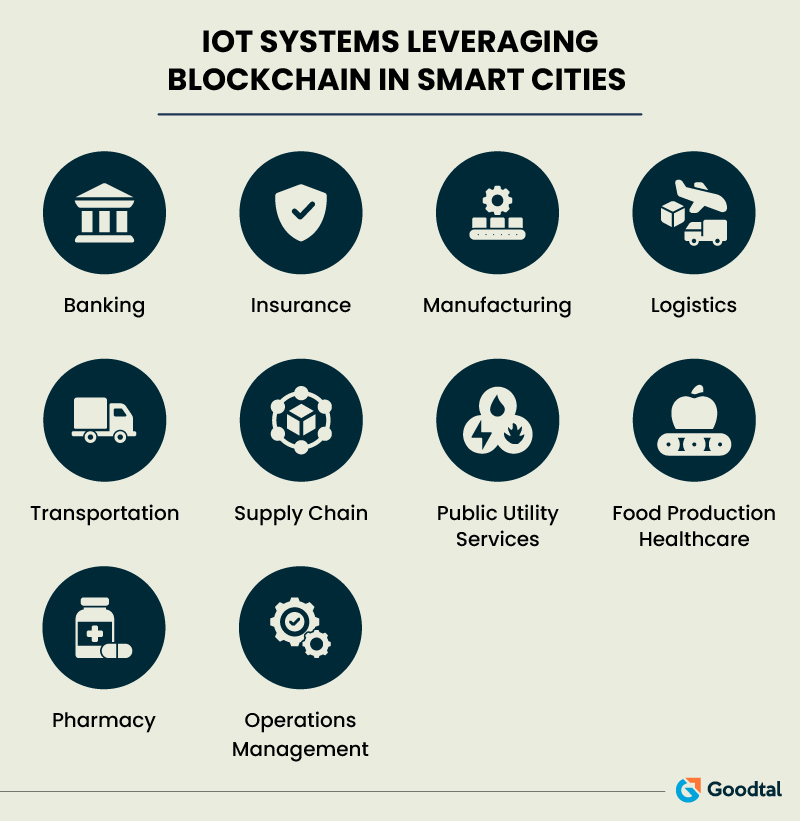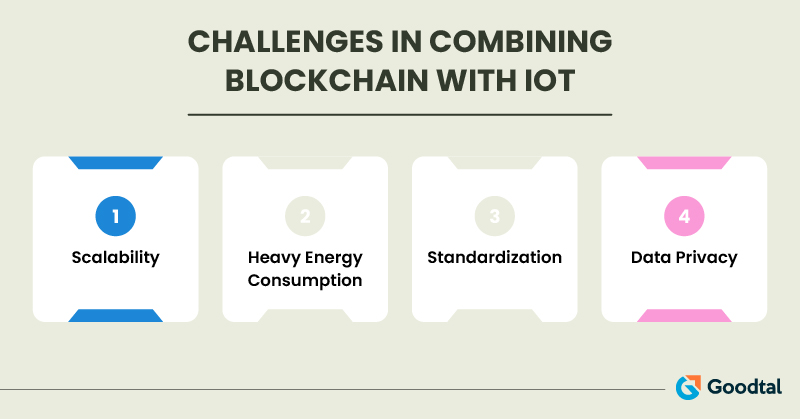
Blockchain development and IoT development are the most hyped topics in the world of applications development. However, have we ever wondered how these cutting-edge technologies are synergizing the growth of each other? Interesting, isn’t it?
IoT has made the world smaller by its interconnection and Blockchain has made the networks more efficient, secure, and transparent. When these technologies combine, the beneficiaries are sure to benefit. Let’s see how the best Blockchain developers are contributing to IoT development!
Collaborative Impacts of Blockchain Technology and IoT
IoT development is not just one area, but a collection of so many areas undergoing development, research, and experimentation. Developers are exploring various cutting-edge technologies to solve IoT issues. Blockchain is one such technology that is being increasingly adopted in IoT.
Blockchain in IoT is contributing to various systems and processes and helping increase efficiency, reduce costs, and optimize resource usage. Let’s discuss the major processes, and how they are benefitting from IoT and Blockchain.
Data Integrity
IoT is a vast collection of applications, devices, and users, making it difficult to manage the huge volumes of data collected and shared. Moreover, the composition of the elements is varied. For example, some users connect to IoT through Android devices, while others connect through iPhones. The system must cater to different hardware and software equally well to prevent bottlenecks and manage security.
In such a situation, data security, integrity, and privacy are serious concerns. Even expert IoT developers struggle to manage issues with these huge IoT systems.
Blockchain is however an immutable decentralized system making the data secure. So, for applications in sensitive industries like finance, healthcare, etc., Blockchain in IoT is a boon. Blockchain also uses encryption and consensus to safeguard data from unauthorized access, preventing the risk of breaches.
Blockchain eliminates third-party intermediaries, also making the system free from any external intervention, thus making it more secure and transparent for the beneficiaries.
Authentication and Identity Management
IoT is complex and widespread with the elements interacting in heterogeneous environments. This makes identification of legitimate users difficult. Blockchain offers smart identity verification where users can control and share their identity with the devices and services securely. Each participant in the system is thoroughly authenticated by the system itself.
Transparency
Any huge systems require transparency for users to build trust in them. Blockchain allows users in IoT to access and verify data. It is not possible for anyone to tamper with data in blockchain-based IoT as any such attempts are easily detected as the network itself identifies consistencies.
Moreover, Blockchain is considered immutable. Any tampering of data will alert all the stakeholders who can take corrective measures on time. This builds trust. For example, in healthcare and medicine, patients can access details of the practitioner and any further information that they need to establish trust. No fake healthcare service providers can breach into the system or fool the users.
Interoperability
Blockchain itself acts as an intermediary layer between devices to help them communicate efficiently and effectively. When used with IoT, it thus helps interoperability of diverse hardware, software, and users without requiring any third-party intervention.
Decentralization
Centralization has traditionally been one of the most challenging issues in IoT. However, the introduction of decentralized Blockchain covers this flaw. Blockchain allows data storage and processing at the edge, close to where it is required. This helps increase proficiency in real-time data analysis and reduces server loads.
Applications of Blockchain-based IoT
Going further, let’s explore the role of Blockchain in IoT in empowering the major sectors of industries.
Supply Chain Management
Blockchain-based IoT in the supply chain increases traceability and transparency of processes. It offers better monitoring of the movement of goods in real-time ensuring quality and preventing frauds.
With the use of Blockchain in IoT supply chains, it is possible to estimate inventory requirements in real time and route it to the right source for Just-in-Time supply. This prevents wastage and reduces storage costs. It also optimizes the supply chain management.
Healthcare
Patient data management has never been as secure as it is now with Blockchain-based IoT in healthcare. Wearables, as a part of IoT, collect health data and share it with healthcare practitioners improving medical care. It can be a savior in medical emergencies.
Blockchain-based IoT in healthcare can also help in telemedicine and virtual access of healthcare to remote areas of the world. Blockchain is largely being used to connect and provide critical services in odd locations that were deprived of resources.
Insurance
Blockchain-based IoT allows real-time access to critical data and helps in reducing false claims in insurance. It can also expedite legitimate and authentic insurance claims. This is applicable to all types of insurance claims including accidental, medical, or property.
The insurance sector can benefit from Blockchain-based IoT by authenticating the party identities, eliminating third-party intermediaries, and increasing process efficiency. This also helps reduce the heavy costs in this sector.
Smart Cities Management
Blockchain makes devices, software, and communication secure and smart. It can also automate processes in smart cities and ensure optimization and transparency in processes such as traffic management, energy distribution, waste management, etc.
Smart cities will increasingly require both Blockchain and IoT to work together to increase speed and optimize logistics and resource usage.
IoT requires heavy data exchange between the nodes and the edges. This necessitates Ethereum's smart contract technology to power a transparent platform that allows seamless and secure data exchange in the IoT. But, obviously, you must go with experienced Ethereum development companies to get the best results from this Blockchain framework.
Power and Energy
As smart cities increase, we will require better energy management. Blockchain-based IoT can manage power grids very well with the power generation facilities, service providers, and users connected to a common grid. This grid can preserve excess energy production at one end and transfer the energy to another area that requires heavy consumption in peak hours of demand.
This will be particularly useful for heavily industrial cities that need good power services to meet their demands for power. They can also avail real-time customer support and the problems are resolved in less time as the Blockchain network tracks the nodes in real-time and alerts the system whenever a fault is seen. Blockchain-based IoT is thus a breakthrough in the energy sector and can make the system much more efficient and fault-free.
Manufacturing
Blockchain-based IoT helps automate manufacturing and increase real-time quality assurance at all levels of manufacturing. As the faults are handled from the first stage, there are hardly any wastages and losses in the processes.
The outcomes in manufacturing are realized quickly with Blockchain-based systems, also because manufacturing depends on so many other sectors. As we have already seen, supply chain management, logistics, energy management, etc., are made efficient using IoT-based Blockchain, and all of these supplement the outcomes of manufacturing to increase RoI.
Blockchain-Based Internet of Things in Smart Cities
As we know, Smart Cities is one of the most happening and talked about applications of IoT. The infographic here shows the major systems and processes that are connected, streamlined, and optimized using Blockchain in a Smart City implementation of IoT.

Challenges in Combining Blockchain With IoT
History proves that advanced technologies have always posed certain challenges. Here are the challenges in adopting a hybrid of Blockchain and IoT.
Scalability
Huge volumes of data are generated by Blockchain and IoT. Scalability is thus a challenge as there are so many hassles in the storage, handling, and processing of such voluminous data. And, maintaining real-time data access in the network is another bigger technical challenge.
Heavy Energy Consumption
Blockchain mining is heavily energy-consuming and it is a concern for the huge and widespread IoT network. However, research is on, and we hope that energy-efficient Blockchain solutions will be the future of IoT.
Standardization
Blockchain-based IoT consists of varied types of hardware, software, and users. The interoperability of these heterogeneous elements and standardization are thus a big challenge. However, as the practice of integrating Blockchain with IoT becomes more widespread, standardization will have to be made a norm.
Data Privacy
As the complexity and scale of IoT and Blockchain increase, data privacy and security become serious challenges. Even the costs and resource requirements to implement security and privacy are very high and require comprehensive planning to budget. But, security is a must, and so the systems must be developed by the best Blockchain development companies specializing in IoT development who have enough experience and expertise in estimating costs, timeframes, and resource requirements for such networks.

Wrapping Up!
IoT and Blockchain technology have existed for some time now and many users across the world are a part of either of these in some form or the other. So, when we talk about the trends, combining Blockchain with IoT is trending now, as the impact of one reinforces the outcomes of the other.
This blog discussed how Blockchain is being increasingly adopted in IoT and its applications in various industries. It also introduces you to the challenges that you must prepare for when integrating Blockchain with IoT. However, it is not possible to prepare for the unexpected and so, it is advisable to go with experts. Only the top IoT developers and the best Blockchain developers will deliver an application that meets expectations.
